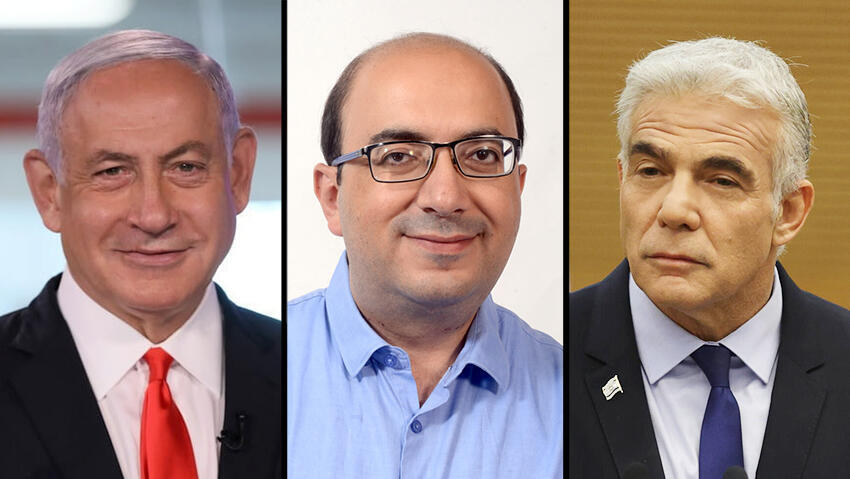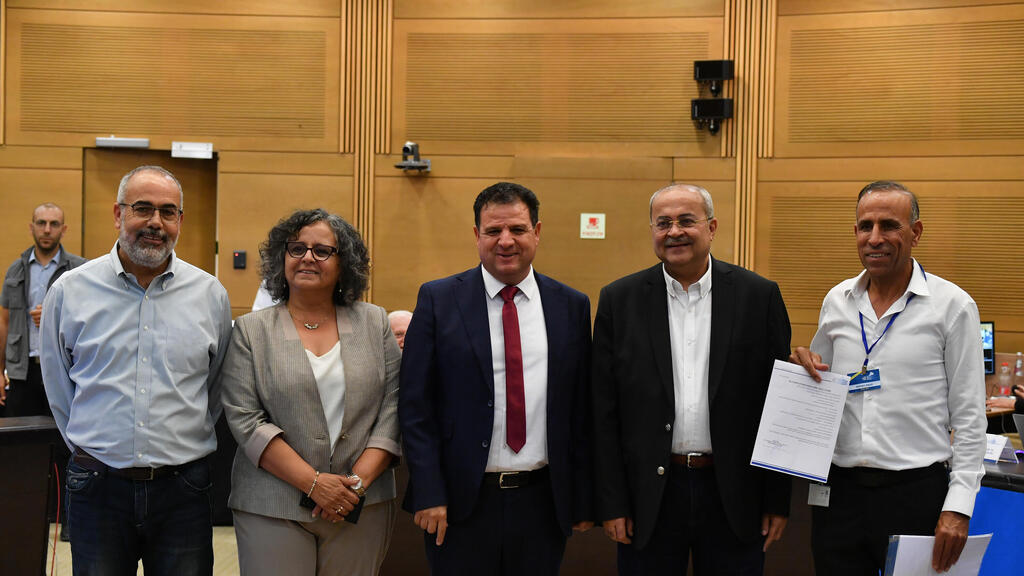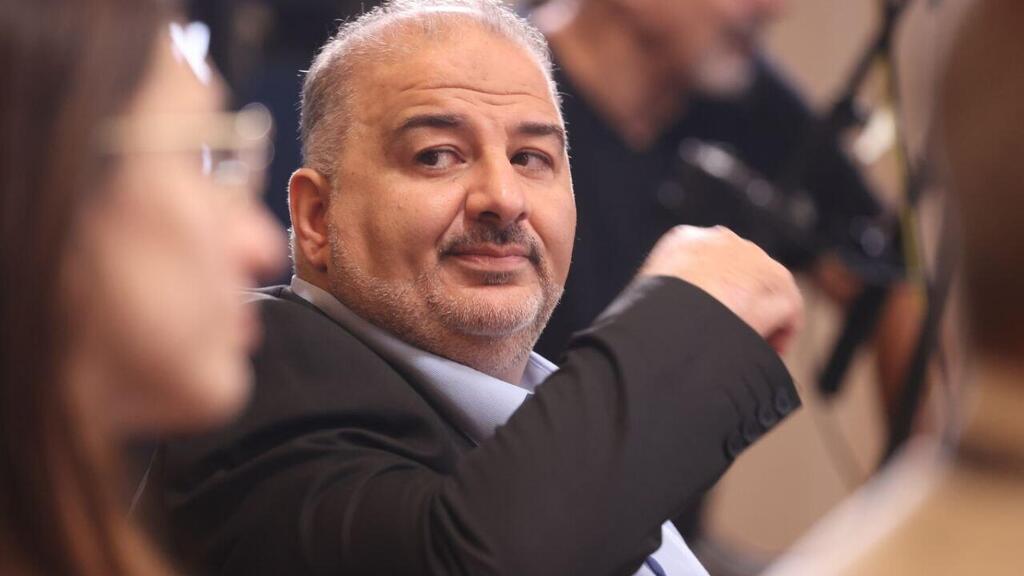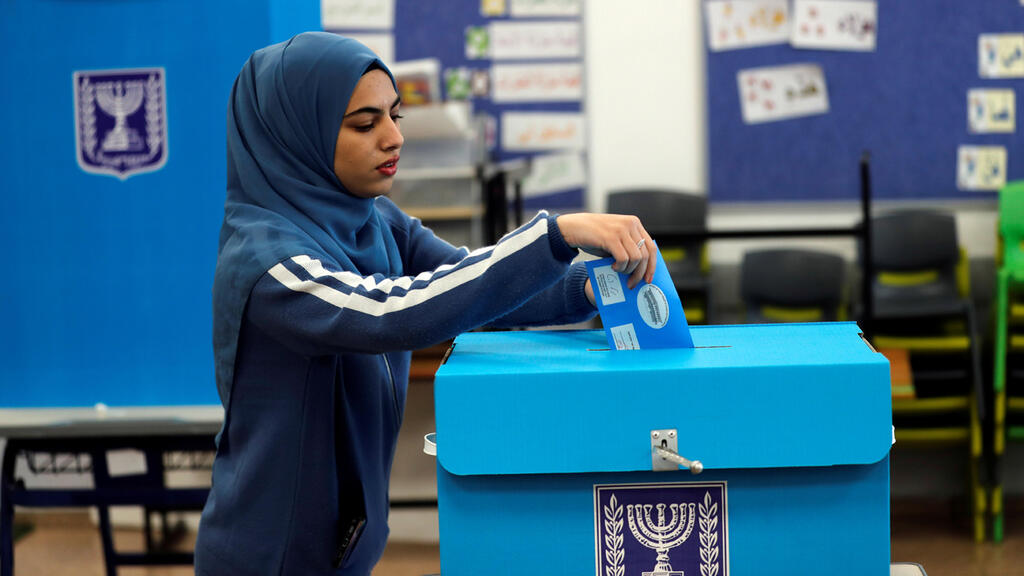Getting your Trinity Audio player ready...
As his secure convoy sped through the streets of northern Tel Aviv last Tuesday afternoon, Prime Minister Yair Lapid sat deep in thought.
He had just revealed his Yesh Atid's party slate for the November 1 elections in a perfectly executed event. But that afternoon, as his convoy was making its way to the Tel Aviv University auditorium, Lapid realized candidates of his own party are not the problem here.
5 View gallery


Benjamin Netanyahu, Sami Abu Shehadeh, Yair Lapid
(Alex Kolomoisky, Join List, Hadar Davidian)
He became aware that the predominately Arab Joint List alliance was on the verge of a split, which was officially announced two days later, and had failed to convince the Labor Party to join forces with its fellow left-wing Meretz faction in order to boost his parliamentary bloc's chances of forming the next government.
The wisdom of Labor Chair Merav Michaeli's gamble to run independently is yet to be determined, but after 18 months of "the government of change," there is little doubt that the experiment of having Arab parties in the ruling coalition has not been successful.
That political cooperation came at the expense of the same public it was meant to serve. Recent polls indicates that Israeli Arab voters are indifferent ahead of the November ballot, doubtful that their needs would be addressed.
Only 40% of Arab citizens say they will take the trouble to vote in November, lowering the chances of Arab led parties, to participate in the next Knesset and granting power to former prime minister Benjamin Netanyahu's right-wing and religious bloc.
5 View gallery


The Joint List presents its list of candidates after splitting with Balad
(Photo: Yoav Davidovitch)
The dramatic split of the Joint List was not lost on the leaders of parties opposed to former Primer Minister Netanyahu. They all understood that they would need the support of the Arab factions if they were to secure a coalition.
Both Lapid and Defense Ministry Benny Gantz, who heads the center-right alliance The State Camp, are trying to help Arab candidates, and especially their coalition partner - Ra'am party leader Mansour Abbas.
After agreeing to serve in an anti-Netanyahu coalition, Abbas made the current government possible and prevented the need for a further round of elections in 2021, after Netanyahu failed to secure a parliamentary majority.
His historic decision demonstrated such a political alliance was possible, even if challenging. But the Islamist party leader is not keen to appear receiving help from the Jews, and Lapid and Gantz are treading carefully.
Still, none of those political leaders named an Israeli Arab citizen in a party slate.
Civil society groups and others, who support the current coalition, have been collecting millions of shekels to increase Arab voter participation to questionable results.
Meretz minister Isawi Frej, who decided to sit out this election cycle is actively working to bring Arab voters to the polls, and he appears to be very pessimistic. "I'm sorry to tell you that there will not be a 55% voter turnout among Arabs," he said.
He was referring to an analysis by a Hebrew University political psychologist, Professor Nimrod Nir, who has been studying Arab Israelis' voting patterns. His polling indicates those voters who do not support their political representatives, will stay home.
"Unlike what we, Jews, believe, the Arabs do not consider the outgoing government a major success despite billions promised to the sector," Nir said.
"They do not see the money. It has made no impact on their lives - hence, their lack of trust in the government. For the anti-Netanyahu bloc to have any chance of forming the next government, there must be at least a 55% voter turnout in the Arab sector," he said.
After the Joint List lost one of the factions of its alliance, political observers were quick to proclaim Netanyahu's chances of returning to power have greatly increased. But, Likud members were not celebrating.
One senior member of the Netanyahu party explained that the jury was still out on the split's affect on the election results. "This could bolster the remaining members of the alliance," he said. "They may ultimately win 12 seats, with more of their constituents convinced to cast their ballots."
Lapid remained calm when the news broke. He had been trying to isolate the Balad party, which is considered by Jewish Israelis to represent the more extreme nationalist views of Israeli Arabs.
Their absence from the Joint List alliance could make future cooperation with the remaining Arab factions more realistic.
"They will not be part of the coalition," Lapid told allies, "but their support in the Knesset would be welcomed and not shunned," he said.




